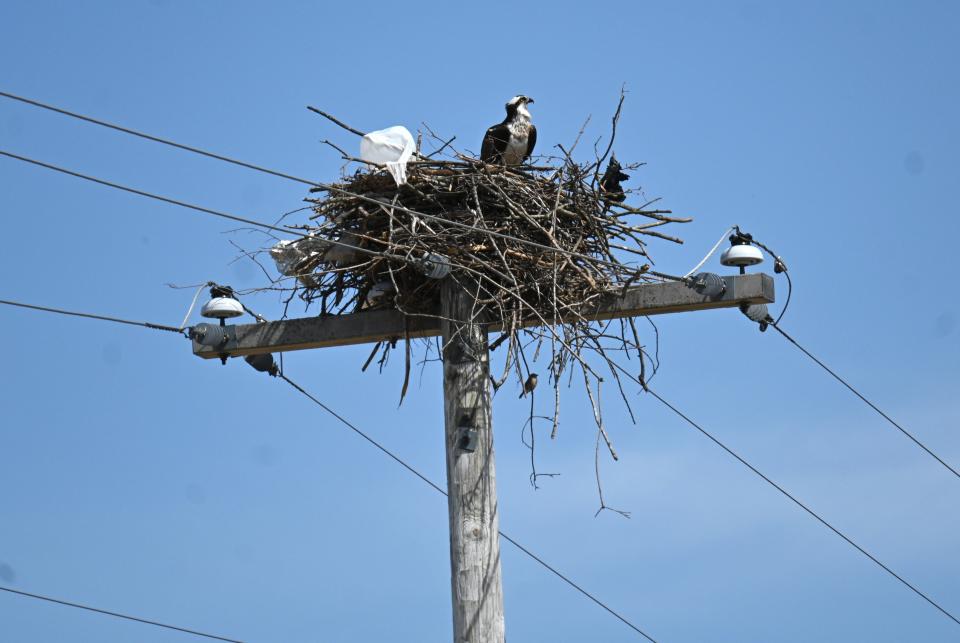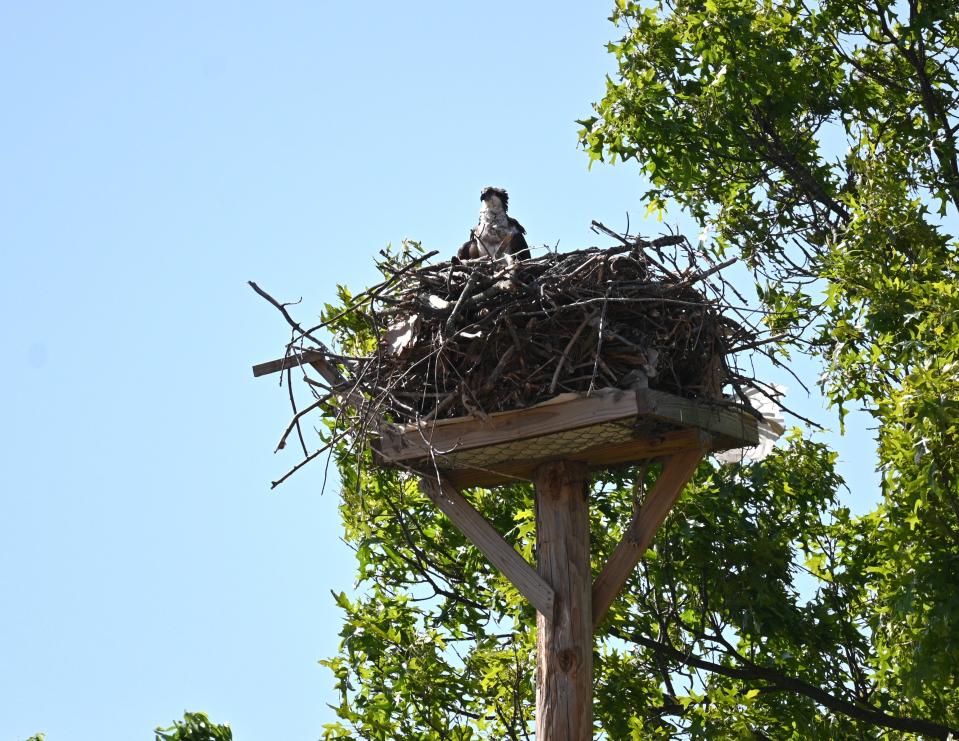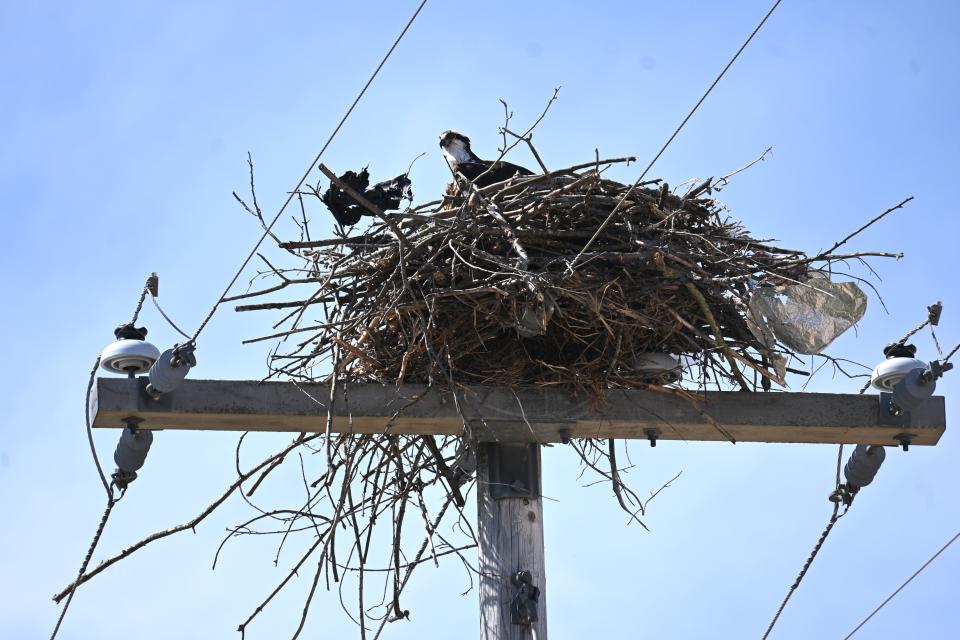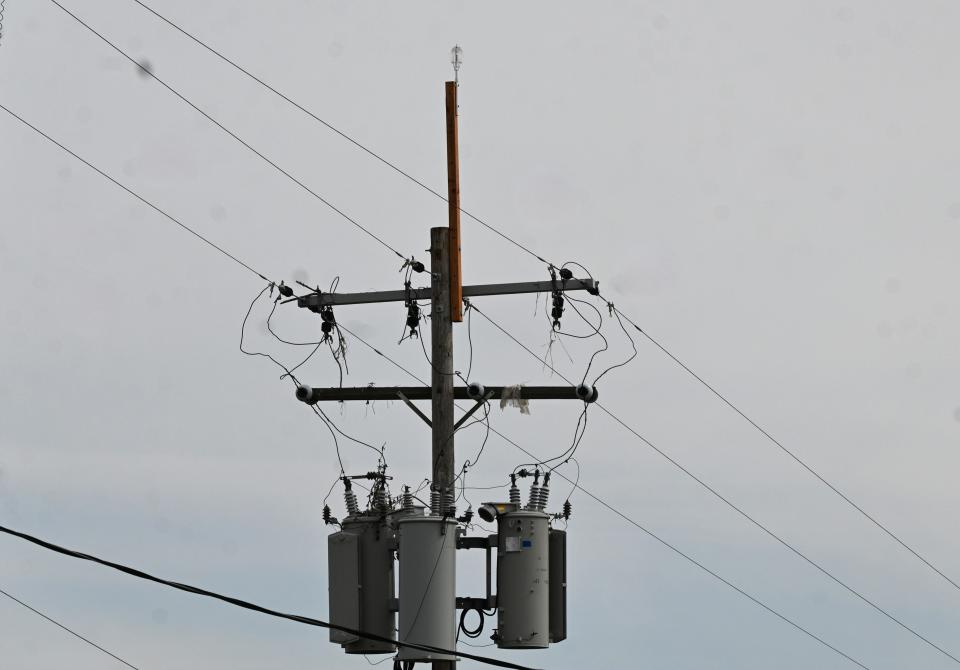Consumers Energy lose this year's battle with osprey
GIRARD TWP. — After wintering down south, the Union City Road pair of osprey returned last week for the summer, building a new nest on another Consumers Energy power pole.
Last summer, the pair, who had nested in the area since at least 2018, tried a home on a platform on top of a pole next to Coldwater Lake.

Consumers Energy, concerned about the safety of the large bird nesting on the power poles, obtained a U.S. Fish and Wildlife Service permit to move the nest in 2021.
The Migratory Bird Treaty Act protects the large predators, a species of raptors related to eagles.
Boys Scouts and Consumers constructed the nesting platform in 2022 in the hope that the mates would stop nesting on power poles.

The birds came back in 2022 to their former pole. Crews removed that nest again that fall.
Power company crews erected a pole on top of that power pole with plastic plume material attached to discourage the pair from building there again.
The 2023 move to the lakeside platform occurred only after Consumers crews removed the 2022 nest and moved the branches and sticks from the removed nest to the platform.
Back on Union City Road for 2024, the new nest is three power poles west of where Consumers Energy evicted them two years ago.

Union City attorney Terry Norris spotted them last week flying to their new pole, carrying large branches, and building a large nest on the top crossbar, holding three live power lines.
Their nest from last year sits empty next to the Hodunk Mill Pond. The large birds often fly by as they dive to catch fish from the pond or the river.
According to the U.S. Fish and Wildlife Service reports on its website osprey have, "a high nest fidelity and return after long southerly migrations to the very nest from the previous year."
Those who travel the road or live nearby look for new osprey chicks in the summer.

When the new nest is complete, the female will lay eggs.
The Wildlife Service said osprey pairs are generally monogamous and often mate for life.
"Ospreys are devoted parents. Young are full-grown at six weeks and leave the nest at about eight to 10 weeks of age, taking their first flights," the service said.
Like many Michigan residents, the whole family then heads south as winter approaches.
Consumers concerns
When Consumers removed the nest in 2021, spokesperson Terry DeDoes explained, "They do pose a fire hazard when they're on our poles. If they make contact with those wires, you could get a fire," which could cause an outage.
Consumers replaced the wood crossbars on the original pole with fiberglass crossbars for added safety.
DeDoes warned, "If an osprey also contacted two of the conductors simultaneously, it would suffer electrocution."
Subscribe Follow this story. Subscribe to the Daily Reporter.
Consumers will consider options after the pair and their new brood fly south this fall.
— Contact Don Reid: dReid@Gannett.com
This article originally appeared on Coldwater Daily Reporter: Hodunk osprey back on Consumers Energy power pole for 2024

